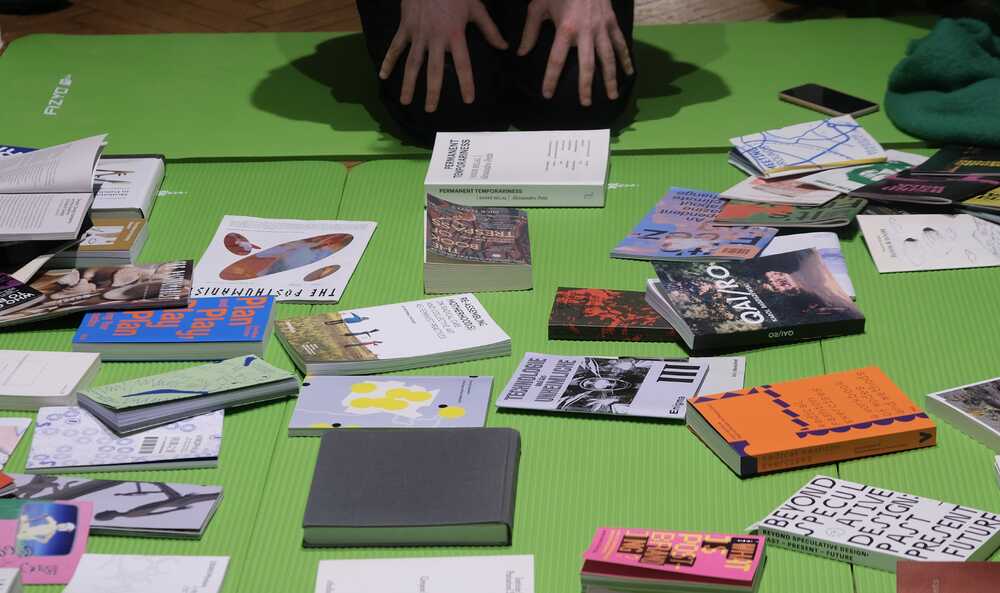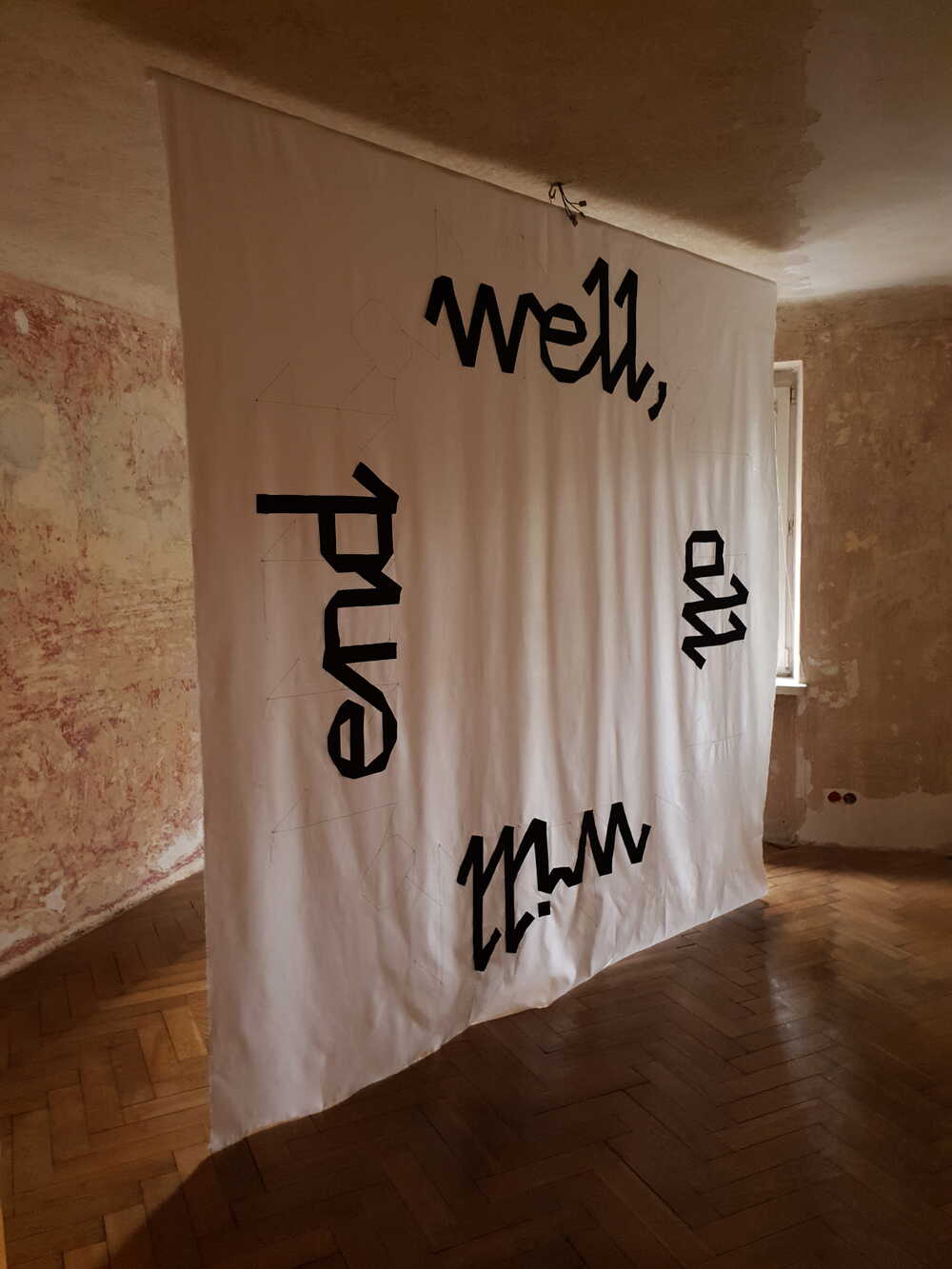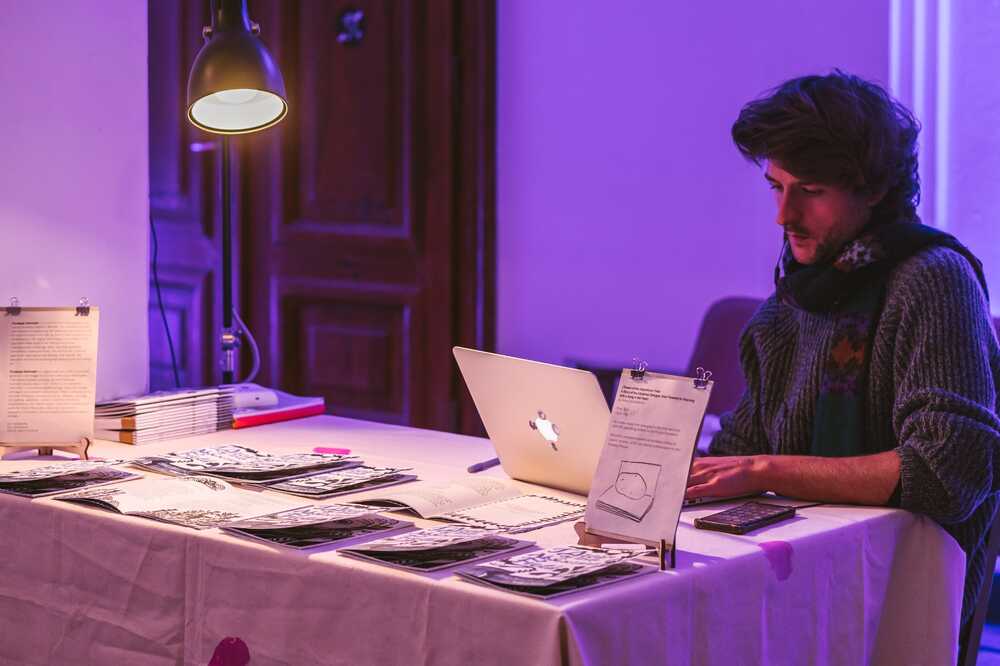Josh Plough
Embarking on the journey of founding an NGO dedicated to a more just and less polarised future is no small feat, especially in a foreign country where language barriers add an extra layer of challenge. Josh Plough, however, took on this daunting task, navigating the intricacies of cultural policy, international funding, and building vital networks. A graduate of the Design Academy Eindhoven’s Curating and Writing program in 2018, Josh initially honed his skills at Onomatopee Projects before relocating to Poland to establish Ziemniaki i (which means “Potatoes and” in Polish). Alongside his academic and professional endeavors, Josh’s contributions to esteemed publications like DAMN Magazine and CriticALL! underscore his commitment to amplifying diverse voices.
In a conversation with freelance curator, writer, and fellow DAE alum Tiiu Meiner, Josh shares the struggles and passion behind creating inclusive spaces that foster creative empowerment and tolerance.
Tiiu Meiner: What led to Fundacja Ziemniaki i’s inception?
Josh Plough: Moving to Poland five years ago, I quickly realised that the design scene here differed a lot from the Netherlands. This, coupled with my lack of Polish, meant there weren’t many opportunities. So I took matters into my own hands and established Ziemniaki i as an NGO. Drawing from my experiences at Design Academy and Onomatopee, I aimed to create a project space (currently nomadic) that acknowledged criticisms of Dutch design while adapting to the Polish context.
TM: How did your experience at Design Academy influence your current path?
JP: My time at Design Academy Eindhoven definitely influenced my path. While studying furniture design in the UK, I discovered a passion for writing reflective theses over hands-on work, driven by concerns over waste in the design field. The Design Curating and Writing course at DAE provided a unique space for research and critical thinking, allowing me to merge academia with hands-on work. This fusion enabled me to channel my creativity into writing and critical analysis, focused on interactions between individuals and their environments. My experience at DAE realigned my approach to design, allowing me to engage meaningfully with critical discourse and cultural work.
TM: What was it like to engage with a new cultural scene?
JP: Reflecting on my experience and criticism of Dutch Design, I realised the importance of questioning the all too often evangelised role of design. I approached this with scepticism, recognizing the need to play with a form of design relevant to Poland, rather than simply importing speculative projects. However, our efforts initially struggled due to limited funding and relevance of this type of design. To overcome these challenges, we started to explore storytelling, particularly folklore and mythology. In today’s complex society, storytelling remains a powerful tool for sense-making and connection, allowing abstract concepts to be situated within relatable contexts. Through storytelling, we can forge emotional connections and enable deeper engagement beyond surface-level interactions.

“we prioritised creating an accessible platform for local creatives, forming partnerships, engaging the community, and curating diverse activities.”

TM: What was it like starting an NGO and what have you learned so far?
JP: Starting the NGO was quite the journey. Building funding networks proved tougher than expected, given the differences in Polish design discourse. So we prioritised creating an accessible platform for local creatives, forming partnerships, engaging the community, and curating diverse activities. Despite challenges, we’ve made strides, notably establishing an extensive design and art research library. While we’ve secured some cultural funding for Ziemniaki i, we still rely on crowdfunding, especially via platforms like Donorbox, to overcome financial hurdles. Please drop us a couple of euros if you can.
TM: What advice do you have for young creatives wanting to follow in your footsteps?
JP: I started to realise that what we know as Dutch design is actively promoted as a tool of soft power. This realisation led me to question the ideals associated with it, like radical criticality or speculative design, realising it’s only as radical as government policy. This realisation prompted me to scrutinise the glossy narratives spun by university PR departments, which often obscured challenges facing designers. This understanding influenced my decision to start Ziemniaki i. Be aware that taking the position of being critical is typically a position of financial privilege; in an oversaturated design market, it is very hard to get a job with that profile. Also, don’t do this alone! I couldn’t have done all this without the support of family and friends.
T M: What’s next for you and Ziemniaki i?
JP: In March 2024, Ziemniaki i commissioned designer and performer Anna “Jurdzi” Jurgielewicz to research the social life of research libraries. You can see the ongoing project here
